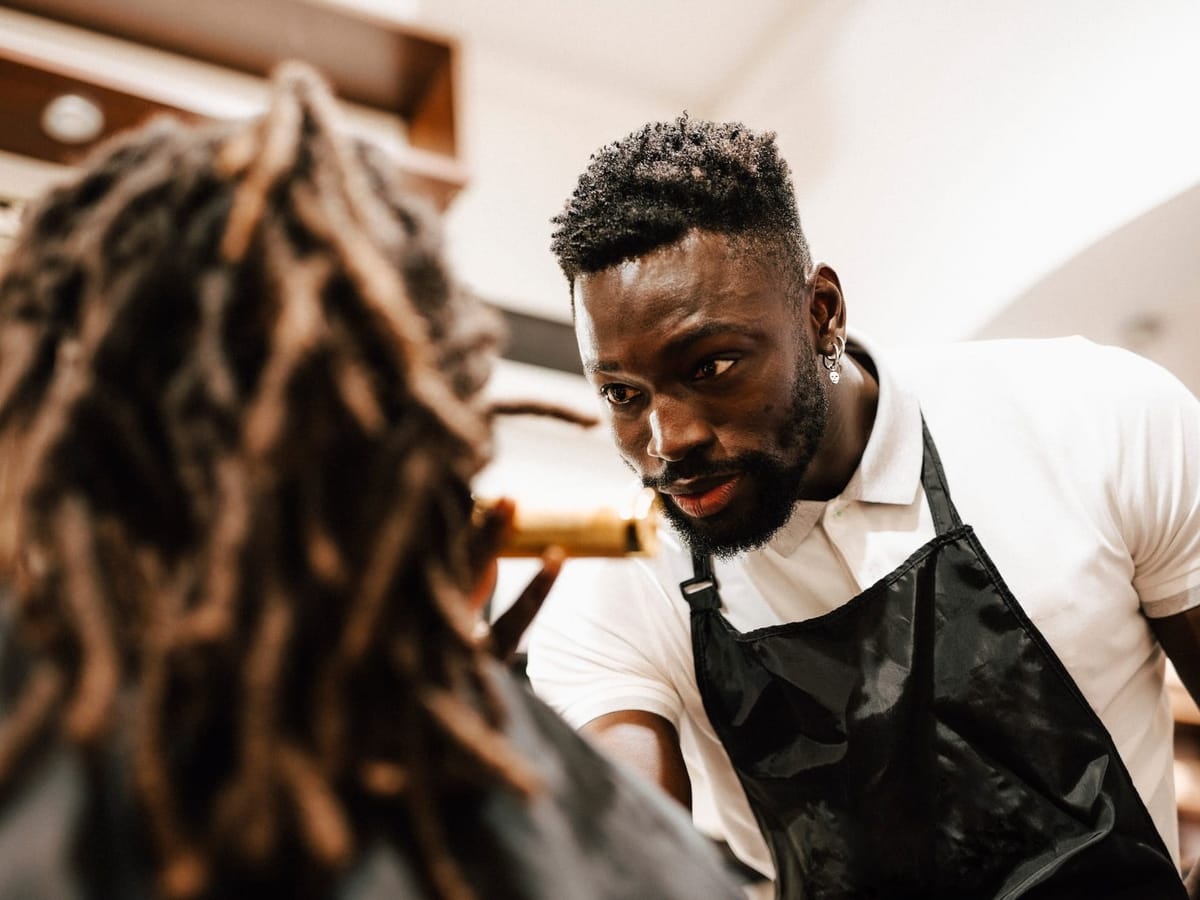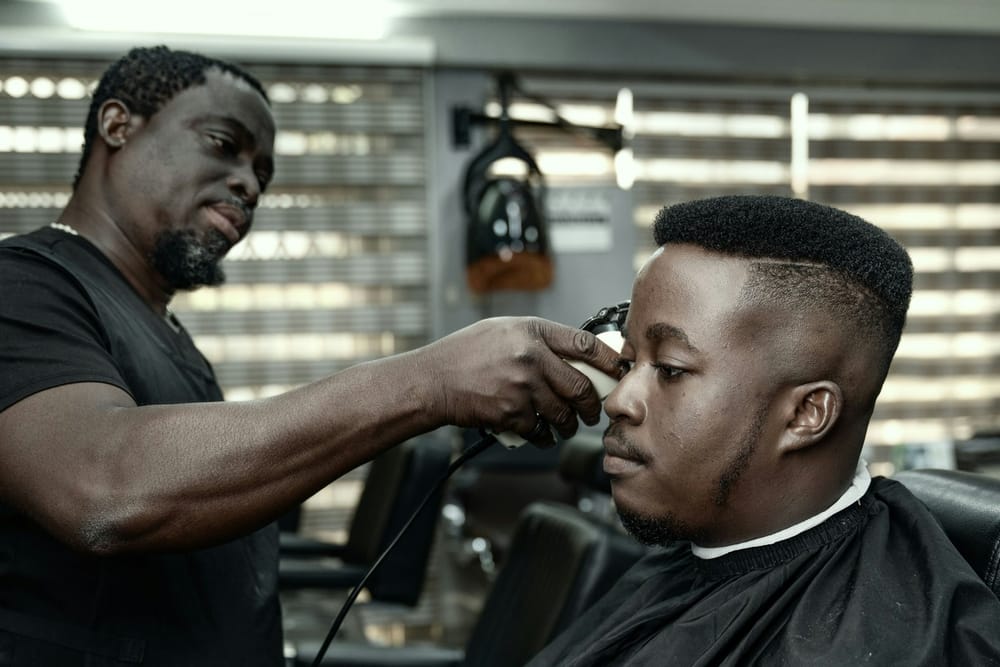Auntie Blandine and my mother were inseparable. If you wanted to know my mother’s plans and torments, Auntie Blandine was the person to talk to, and vice versa. Their bond was such that the face of one betrayed the chances of the future success or failure of a plan of the other. They were always seated next to each other at the family gatherings. They both had the role of co-president of the tontine that they had co-founded. It was said that they had sworn to each other that if one died first, the one who survived would take care of the other’s children. Auntie Blandine was the calmest. She always kept her cool. My mother, on the other hand, was impulsive. They complemented each other. They were each other’s rock, they often told themselves.
Unlike my mother, Auntie Blandine was in a relationship after years of celibacy, during which she had raised my cousins Amba and Ayi alone. We called her partner by the name of his favorite brand of cigarettes. It was Uncle “Benson.” He came from the Bamileke tribe, in Western Cameroon. Their customs were very different from those of my maternal family. For example, the Bamileke identify with a chieftaincy or a village of origin, whereas my mother’s tribe identifies with language.
One morning, Uncle Benson disappeared. I was around 10 years old at that time. The adults, as often, had opted for whispering to avoid us hearing them. What they forgot was that we children knew their habits. We had seen them do it in the past. We knew that something was wrong. Cousin Ayi, Auntie Blandine’s youngest son, told us that he had caught his mother fighting back tears. When she saw him looking at her, she shouted at him that their lives were going to change for the worse in the near future.
“We have no one left,” Auntie Blandine told him, in dialect. “We have no one left. We have no one left. You can tell that to your brother.”
When adults used this dramatic expression in my childhood in Fanta-Citron, in Mvog-Ada, the socio-economic ghetto where I grew up in Yaoundé, Cameroon, they meant that our living conditions were going to get worse. What they did not realize was that we children did not believe that it could get any worse. We only ate once a day. We walked for miles to school. We sold cassava sticks and water to survive. We boys spent most of the time shirtless because we did not have enough clothes to wear. Our parents were the ones who lived in denial. Did they really think that there were people below us on the socio-economic ladder, we used to ask ourselves when we were together.
“Uncle Benson will not come back,” Cousin Ayi concluded his account of the episode with Auntie Blandine.
“Are you sure about that?” asked his brother Amba.
“Positive. We won’t see him again,” Ayi replied.
There was silence.
“But it doesn’t change anything for us,” Amba intervened.
We all looked at each other and shrugged. There was no doubt in our minds that if anyone’s situation was going to change dramatically in the coming days, it was Auntie Blandine’s, and my mother’s in association. We could visualize the two through the imitations of Cousin Vieux and Cousin Assala.
“She won’t do anything for the little ones anymore,” Cousin Ayi decreed. “I’m the one who’s going to start cooking again. Amba, you’ll take care of doing her laundry.”
It was cousins Ayi and Amba that I was thinking of a few days ago as laughter erupted in my barbershop in Harlem, New York over the upcoming Donald Trump administration. On this last Thursday before Christmas, the name of the President-elect brought my barber, his two colleagues and the few customers in the shop out of their torpor. They were eager to turn the chapter on the Biden administration. They couldn’t wait to see what Trump had in mind because “everyone is saying crazy stuff” as my barber put it.
“The Blue say that he is going to be bad for us," said my barber before shaking his head. "He is gonna to be bad for immigrants. They say that he is gonna to be bad for democracy. They say that he is very dangerous.”
“The Blue” referred to the liberals and the Democrats.
“Trump promises to fix the economy," a second barber chimed in. "He is gonna to send immigrants back. Man, Trump is gonna to fix America.”
“Bro, he is Trump. It’s Trump we are talking about here, man,” said the third barber.
A collective and loud laughter interrupted him. They were alive. For a few minutes, I thought they had lost their mojo. The woman who runs the shop next to the barbershop pushed open the door separating the two stores. She stuck her head in, addressing the third barber. After a few minutes, the rest of the people in the barbershop took their eyes off them. The freezing cold that was forecasted to take over New York has started to settle in. But my bros were sweating in a combination of fatigue and weariness. They were eager for the new year to start; eager for Trump to finally be in power.
“Man, people say things,” said a customer sitting on the waiting bench. “I want to see what he wants to do. No more talk, man.”
The others nodded. A silence settled in. All that could be heard was the buzzing of the clippers.
"Bro, the Blue say that Trump is gonna f*** up my life," my barber interrupted. "We know Trump,”
“He talks too much, bro,” one of the customers on the bench interjected.
“Bro, the man likes to talk," my barber agreed. "It’s Trump, man Not sure he knows what he is saying, bro.”
“Bro, Trump is Trump. He is gonna say things and the media is going to go crazy," the second barber added. "He triggers the media. He is gonna to be good for the media.”
He then turned to me and said: “Bro, he’s good for you.”

They all started laughing. And like me and my cousins when I was a child, they began to imagine what the second Trump presidency would look like. According to them, there will be a lot of braggadocio, thunderous declarations and provocations on a daily basis that the mainstream media will rush to repeat ad nauseam; tax cuts, the hunt for immigrants and “good news” for business owners like them.
They anticipate a match between Trump and the media who will, according to them, do the work of the “Blue.” My bros see themselves as spectators and are amused to hear that some Black men and Brown folks voted for Trump against their interests.
“Bro, the Blue know nothing about my life. We struggle, bro. Biden and the Lady had power. They didn’t do anything for me” said my barber, using the nickname they had given Vice President Kamala Harris. “Trump can mess things up, but it won’t change anything for me.”
“Man, the Blue don’t give a s**t about us,” opined the second barber. “It can’t get worse with Trump.”
“Trump is a billionaire. He knows how to make money, man. When he makes money, everyone makes money,” said one of the patrons.
They said that the Democrats and the mainstream media see them as gullible and somewhat stupid. But what their critics forget is that they are already at the bottom of the social ladder. Basically, there is no lower point than where they are. They have nothing to lose. Therefore, telling them that they will pay a high price for having voted for Trump shows the liberals’ failure to understands their realities.
“What do they know about us?” asked the third barber. “They want to use us to defend their own interests.”
“We’re tired of being puppets. We know who Trump is,” my barber agreed.
“Who doesn’t know Trump?” two customers on the bench asked rhetorically as conversations shifted to Trump's latest statements .
The conversation then turned to the President-elect’s latest statements on Canada and immigration.
On my bros face there was the look of we-want-to-see-for-ourselves-what-he-is-going-to-do. They also seemed tired of all the warnings about Trump. The more warnings, the less they are inclined to listen. I also detected anger towards the Blue. It seems that they want to judge the President-elect on his future actions, not on his past. They are giving him a chance, and asking everyone else to back off.
This post originally appeared on Medium and is edited and republished with author's permission. Read more of Luc Olinga's work on Medium.

